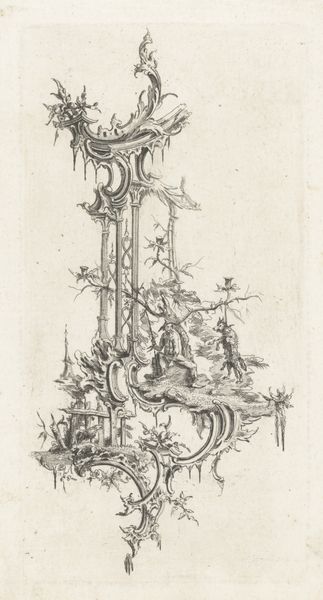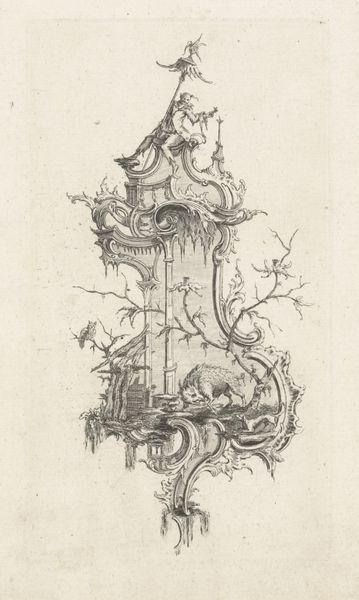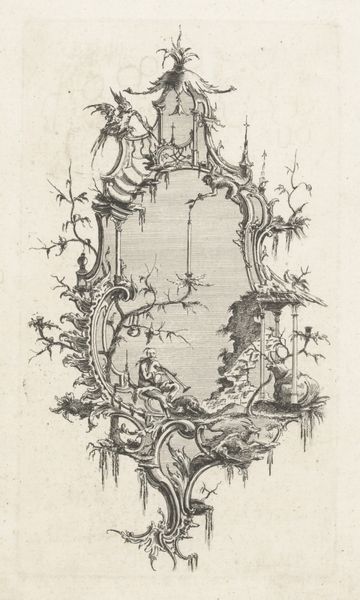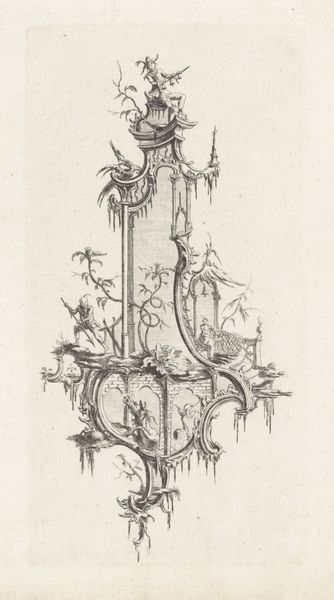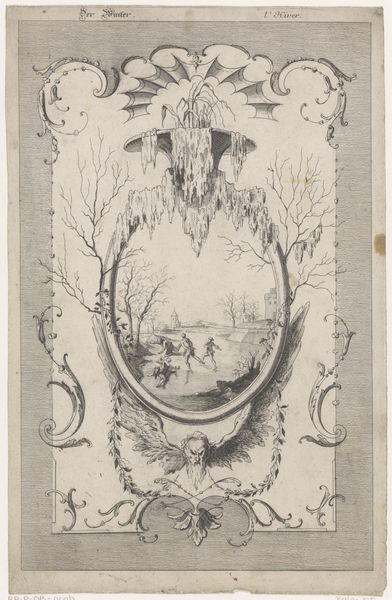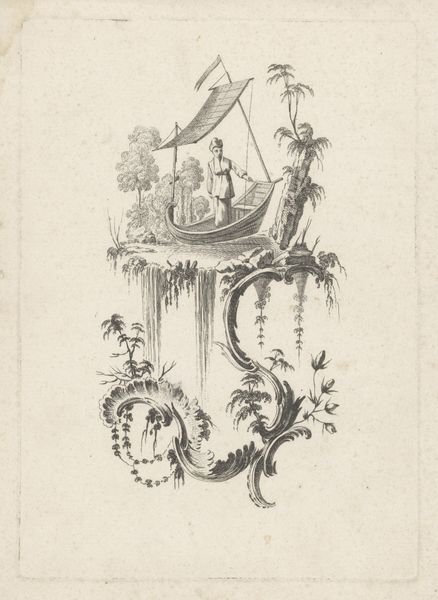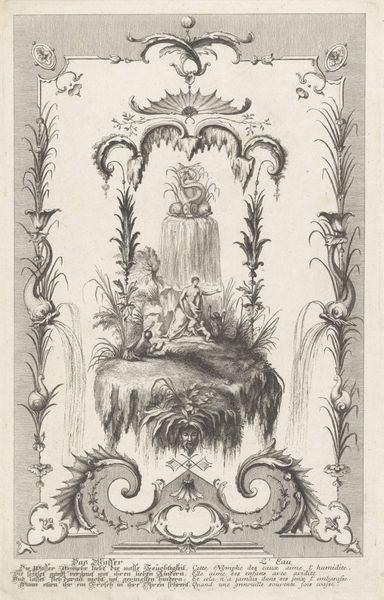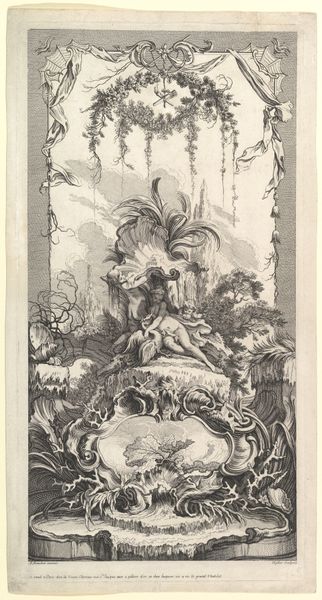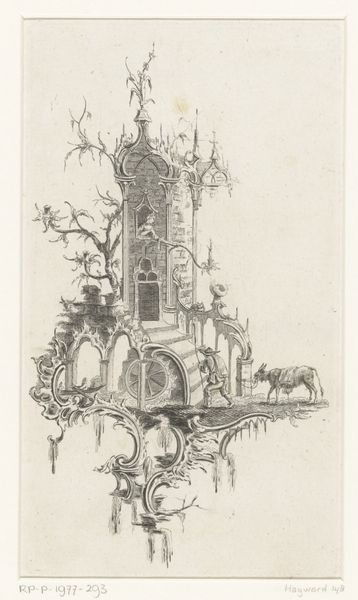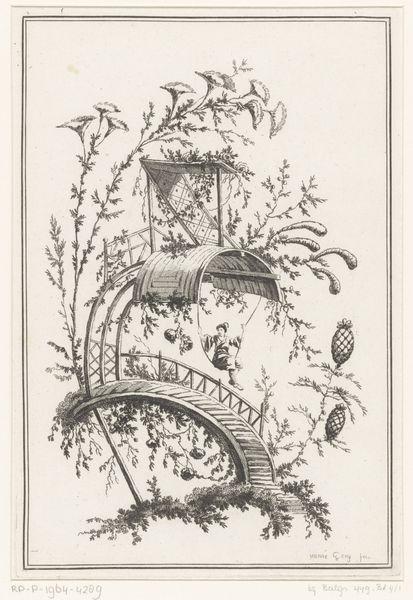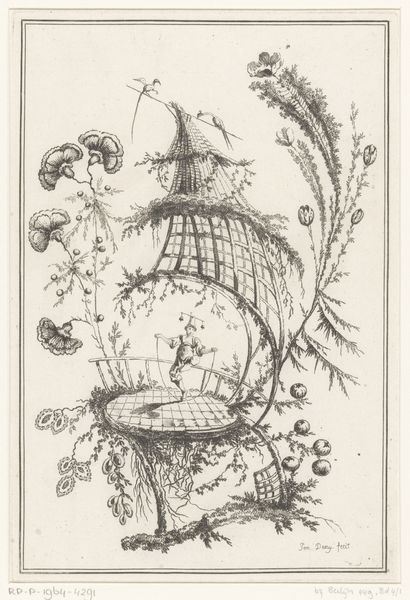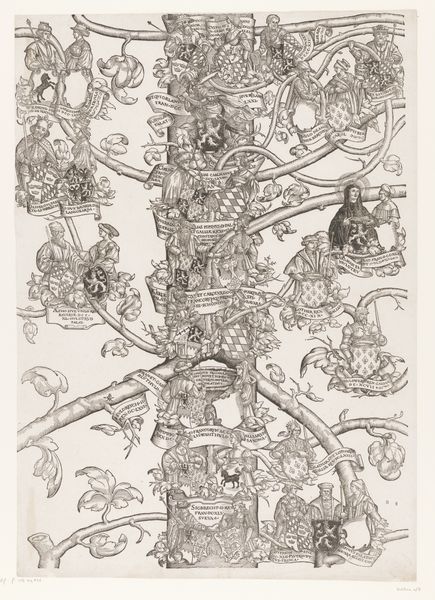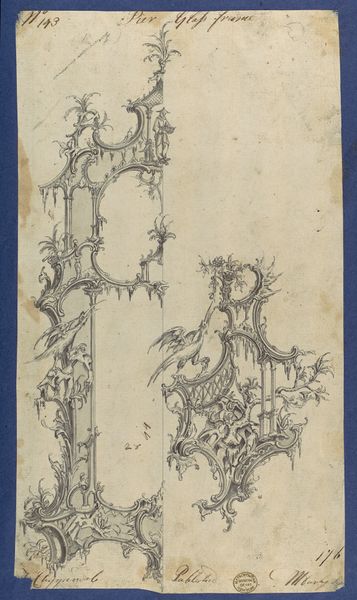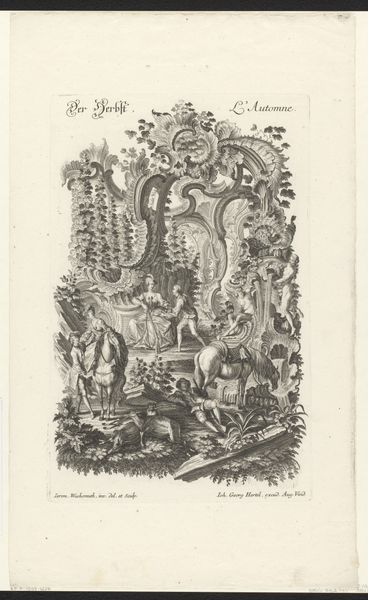
print, engraving
#
allegory
#
baroque
# print
#
pen sketch
#
old engraving style
#
form
#
line
#
decorative-art
#
engraving
Dimensions: height 188 mm, width 107 mm
Copyright: Rijks Museum: Open Domain
William Austin made this etching, Girandole met Diana, in 1752. The print advertises twelve girandoles, which are ornate and decorative candle holders. Consider the historical backdrop against which Austin created this design. The 18th century in London was a time of burgeoning commerce and conspicuous consumption, where designs like these catered to a wealthy clientele eager to adorn their homes with fashionable items. Diana, the Roman goddess of the hunt and wilderness, embodies a certain kind of aristocratic ideal. The print suggests not only wealth but also a cultivated taste, aligning the buyer with classical ideals. What does it mean to decorate your home with images of powerful women? Does it change the dynamic of who holds the power within the domestic space? The inclusion of Diana speaks to the complex negotiation of gender, class, and status reflected in the material culture of the time.
Comments
No comments
Be the first to comment and join the conversation on the ultimate creative platform.
